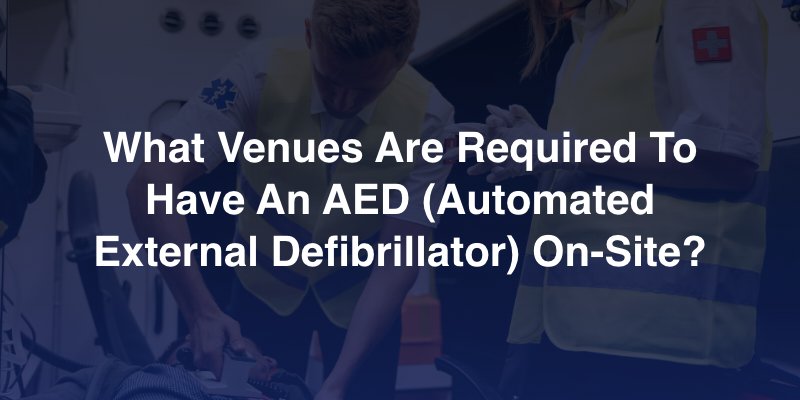
Automated external defibrillators (AEDs) can save lives when used promptly and properly after a person experiences a cardiac event outside of a hospital. That is why the state of Florida requires many types of locations to carry AEDs. Here, we want to examine which areas state law mandates that AEDs be present.
Where an AED Should Be Located in Florida
Perhaps surprisingly, there are few locations where state law actually requires an AED to be present.
Some public schools
Florida law requires that an AED be present on the grounds of a public school facility if the school is a member of the Florida High School Athletic Association. Additionally, the law specifies that any school employee or school volunteer who could reasonably be expected to use the AED must hold a dual CPR/AED certification.
AEDs on public high school grounds in Florida should be registered with the local emergency medical services provider, and the EMS provider or public safety office should know the location of the AED.
Some assisted living facilities.
Florida law requires AEDs to be present in assisted living facilities if the facility has 17 or more patient beds. This comprises of the vast majority of assisted living facilities in Florida.
Dentist’s offices
Every dentist’s office in the state of Florida should have an AED on premises and a person certified to use the device at all times when the office is open to patients, per Florida Administrative Code – 64B5-17.015.
Are AEDs Required in Other Locations
Under state law, only the above-mentioned locations are required to carry an AED on the premises. However, other locations typically have AEDs present as well, and these are usually clearly labeled so that employees, volunteers, or bystanders can take action in the event a person experiences a cardiac event. Some of the locations where AEDs are typically located (but not always) include:
- Inside first responding vehicles, including police cars
- Inside malls
- At state parks
- Airports
- Grocery stores
- Office complexes
- Private schools
- Churches
Any areas where an AED is located will typically have an employee or volunteer certified to use the AED. Additionally, state law allows bystanders to use an AED if necessary to save a life, and these bystanders typically receive liability protection through Florida Good Samaritan laws.
Do You Need an AED Liability Attorney?
If somebody you love has been harmed or lost their life because a facility did not have an AED present, we encourage you to reach out to an attorney as soon as possible. Facilities could also hold liability if an AED was present but not working or if there was not a certified individual able to use the AEDs present at the time the cardiac incident occurred.
A skilled AED liability lawyer can examine the facts of your case and help offer advice on your next steps. When an attorney gets involved, they will handle the investigation into the claim as well as all communication with other parties involved. This includes any negotiations for a fair settlement for you or your family.



